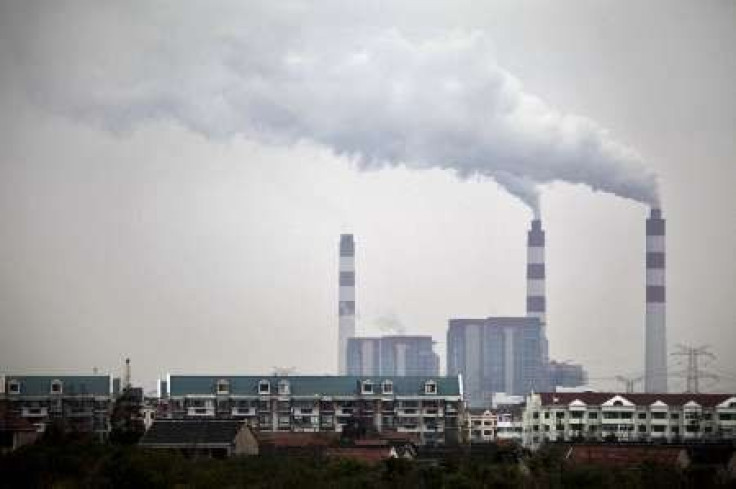US To Impose 1st Carbon Limits On Power Plants

The U.S. Environmental Protection Agency introduced rules Tuesday that, for the first time, would curtail emissions of heat-trapping greenhouse gases from coal-fired power plants.
The long-awaited rules -- subject to public comment and further discussion before taking effect -- would sharply limit the harmful emissions allowed from such plants built in the future while allowing existing coal plants to keep operating for years.
The decision formalizes a push by President Barack Obama's administration for the government to take action against pollution from new power plants, over protests from Republicans who have said the rules will force up the price of electricity and damage the coal industry. Coal is a major source of U.S. electricity.
The EPA on Tuesday outlined a standard that could effectively prohibit new coal-fired stations unless they use carbon-capture technology. The agency, according to a fact sheet, would set a strict limit of 1,000 pounds of carbon dioxide emissions per megawatt hour.
In addition to exempting power plants that are already operating, the new rules will also spare new plants that are permitted and under construction within the next 12 months, the EPA said.
The agency, however, said its proposed rules wouldn't have much impact on future greenhouse-gas emissions. That's because natural gas, which is cheaper and gives off less carbon dioxide than coal when burned, is a more attractive option for companies looking to build generating stations.
EPA Administrator Lisa Jackson, quoted in a conference call with reporters, said the most efficient of those new natural-gas plants should be able to meet the proposed standards, adding that natural gas is already the technology of choice.
This standard isn't the once-and-for-all solution to our environmental challenge, but it is an important common-sense step toward tackling the ongoing and very real threat of climate change and protecting the future for generations to come, Jackson said.
She added that the rules include the flexibility of giving new coal-fired plants the option to meet the new standard based on average emissions over 30 years, rather than requiring them to meet the standard immediately.
Michael Brune, executive director of the Sierra Club, told the Associated Press in an interview that the regulation shows that the Obama administration is moving to a cleaner energy future.
It's a strong move, Brune said. It means there will never be another coal plant built without new technology, and it probably means even those won't be built because they can't compete.
Other advocacy groups, however, said the regulation was imperfect, since it grandfathers in existing plants, the AP reported.
© Copyright IBTimes 2024. All rights reserved.











